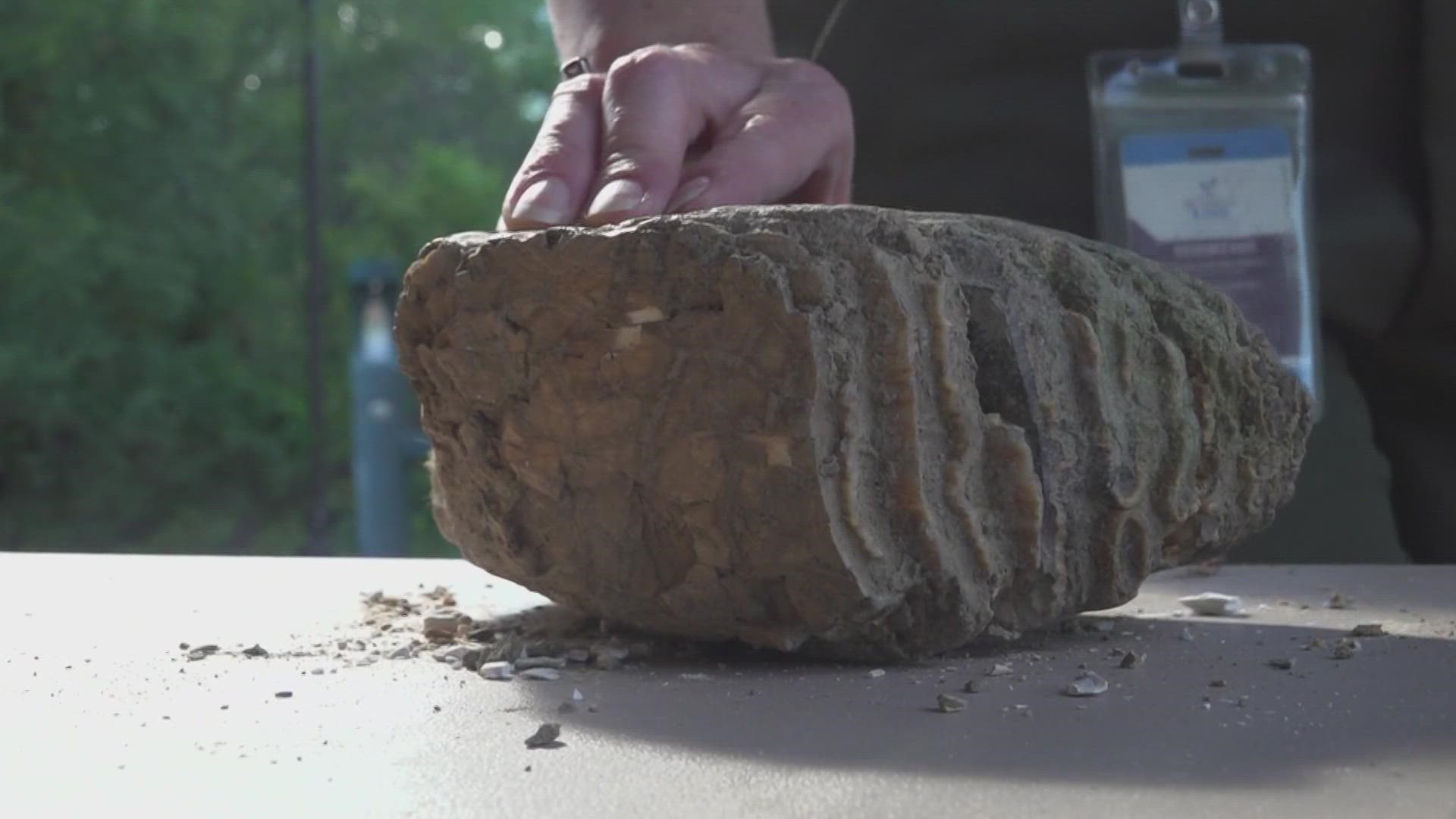TEMPLE, Texas — A big discovery of a tiny fossil could possibly answer some questions about how modern animals came to be.
Researchers with the Earth Sciences department at Durham University in the United Kingdom have reportedly discovered a fossil of an ancient larva with its internal organs preserved in "exceptional quality", revealing the tiny organism was actually quite a complex creature.
According to a release by the university, the fossil, named "Youti yuanshi", belongs to a group called euarthropods, which includes modern insects, spiders and crabs. The fossil reportedly has an "advanced brain", a digestive system, circulatory system and clusters of nerves extending into "primitive legs and sensory appendages".
The study says the level of anatomical complexity of the creature is "remarkable" for such an ancient organism, especially because the fossil is "no bigger than a poppy seed".
Researchers believe the fossil dates to around the late Atdabanian stage of the Early Cambrian period, around 521 million years ago. The University of California Museum of Paleontology states the Cambrian Period is the time when most major groups of animals first appear in fossil record, sometimes referred to as the Cambrian Explosion.
So, what does this new discovery mean? The researchers in the study say the fossil could help bridge a "key transitional gap" in arthropod evolution between "simple, worm-like ancestors" and modern arthropods, such as how their heads, antennae, jaws and eyes became segmented and specialized over time.
The researchers said the discovery could help fill in gaps of how arthropods as we know them came to be and how they became so successful during the Cambrian Explosion.
The fossil was reportedly discovered in Yunnan, China, and is being kept at Yunnan University.
The entire paper on the study can be read at this link.
More from 6 News:

